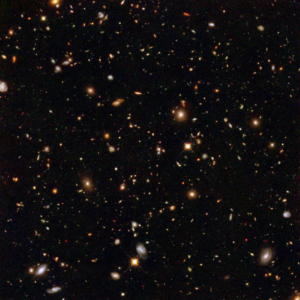 I’ve been thinking a lot lately about what it means for people — people like my mom, who regularly shares much passed-around Facebook posts about menopause, marriage, and Dick Cheney — to love science. What does it mean for my mother, an Iranian immigrant with an art school degree who has been working at an insurance company for the last fifteen years, to give two shits about science in the first place?
I’ve been thinking a lot lately about what it means for people — people like my mom, who regularly shares much passed-around Facebook posts about menopause, marriage, and Dick Cheney — to love science. What does it mean for my mother, an Iranian immigrant with an art school degree who has been working at an insurance company for the last fifteen years, to give two shits about science in the first place?
Much of this has come because of recent increased buzz resurrecting tried arguments over the ever-marooned “two cultures”. Art and science are two fundamentally different worldviews, the argument goes, and while occasional appreciators of both can cross-pollinate, the underlying truth remains: a scientific perspective pieces together a million different fragments of reality far-removed from the human truths sought out in art. Aesthetic beauty, or its opposite, plays seemingly no role in the strict objectivity of scientific discourse. Art invents, science discovers.
And yet — as many, many people can argue way better than I — this is of course not really true at all.
Which is why the recent post “Why You Don’t Fucking Love Science” rubs me a bit the wrong way. Showing a stunning photo of a hazy, purple, speckled Milky Way, followed by another image of an electric green, wildly branched, GFP-tagged neuron, science fiction writer and scientist John Skylar hits you with the hard truth: Those pictures are not science at all! They are merely cool images that trick you with the sense of wonder they inspire, forcing you to perform the most benign and underwhelming act of human approval currently on the market — hitting the Facebook ‘like’ button. “You’re confusing data with science,” Skylar charges. “Science is the process and the people. Data is the residue.”
I’m not saying that the oohs and ahs inspired by pages like “I fucking love science” (which has an impressive 6.9 million Facebook followers), or the dozens of Tumblrs glibly posting “pretty space pictures and fluorescent brains” everyday, have much value in terms of science literacy; the images are at best decontextualized and at worst wholly misinformed. But the Internet has allowed for something special, in that ordinary people can, in whatever abstract or casual way, think science is cool in the first place, and therefore is in any way accessible — even if only for a fleeting instant. The simplicity of an image can achieve that.
Though the post mostly then harps about “going to bat” for science to increase funding at the political level, that’s far from a straight shot away, as anyone involved in the long battle for greater action on climate change can attest to. But I think it also loses sight of the fact that a page like “I fucking love science,” or the many more meaningful public projects attempting to highlight science and art as parallel and occasionally overlapping processes, does have a trickle-down effect; it’s a glimpse into a world too often quarantined, often — as Skylar here demonstrates — by its own practitioners themselves.
To those with a better understanding of the field in question, the pictures may seem superficial. But even a molecular neuroscientist can appreciate — and even ‘like’ — a picture of the cosmos that captures something outside of what they look at routinely at their day jobs, which happen to involve staring into microscopes at universes exponentially smaller than the vastness those images inspire. That a pretty space photo can do the same for a non-scientist slogging away at a mundane office job is a testament to the data not being mere “residue.” It wouldn’t hurt the struggling market for academic science to recognize the greater universality their ‘data’ has the potential to contain.
This post originally appeared on the author’s personal blog.
This post may contain affiliate links.








